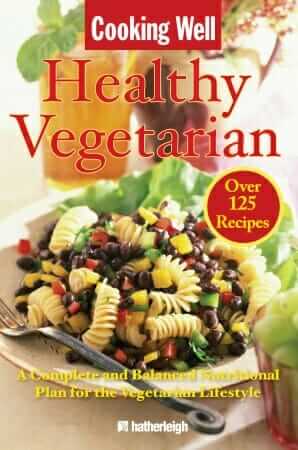Here is the truth behind some of the common myths about vegetarianism shared in Cooking Well: Healthy Vegetarian, a complete guide that provides over 125 meatless and simple recipes that are as delicious as they are nutritious.
Myth #1 — Vegetarian diets aren’t healthy, because they don’t include meats. This is not true. While it is true that an unbalanced vegetarian diet can be just as unhealthy as an unbalanced meat-based one, a balanced vegetarian diet is healthy. In fact, the American Dietetic Association (ADA) recognizes that well-balanced vegetarian and vegan diets are beneficial for all age groups. Statistics show that vegetarians who eat a proportionate and well planned diet have lower cholesterol and fewer problems with obesity, and are at a lower risk for a slew of serious diseases (such as cancer, heart disease, osteoporosis, stroke, and diabetes).
Myth #2 — Once can reap the benefits of vegetarianism by simply giving up meat. This is completely false and potentially dangerous to the person’s body. Yes, becoming a vegetarian means forgoing meat and other animal flesh, but it also requires more than that. A diet devoid of meats that is not replaced with a balanced diet that includes healthy vegetarian choices — like legumes, fruits, vegetables, nuts, seeds, grains, and greens — can do more harm than good.
Myth #3 — Vegetarian diets are all low in fat. While vegetarian diets are normally lower in fat than most diets that include meat and other animal flesh, that fact alone does not automatically make them low-fat. Most vegetarian diets are significantly lower in saturated fats, but there are many vegetarian foods that contain high levels of fat. For instance, nuts, soy-based foods, and seeds are high in vegetable fat. Also, vegetarians who eat dairy products and eggs can quickly consume high levels of fat. It is just as necessary to monitor the fat content in a vegetarian diet as in any other.
Myth #4 — Eating vegetarian meals is complicated and more time-consuming. Actually, the preparation and cooking of many healthy vegetarian meals can be done as easily and in the same amount of time as meat-based ones. In recent years, there has also been an increase in the number of vegetarian convenience foods available. Making use of canned and instant beans and soy products like tofu and tempeh can also make cooking vegetarian meals quicker and easier.





